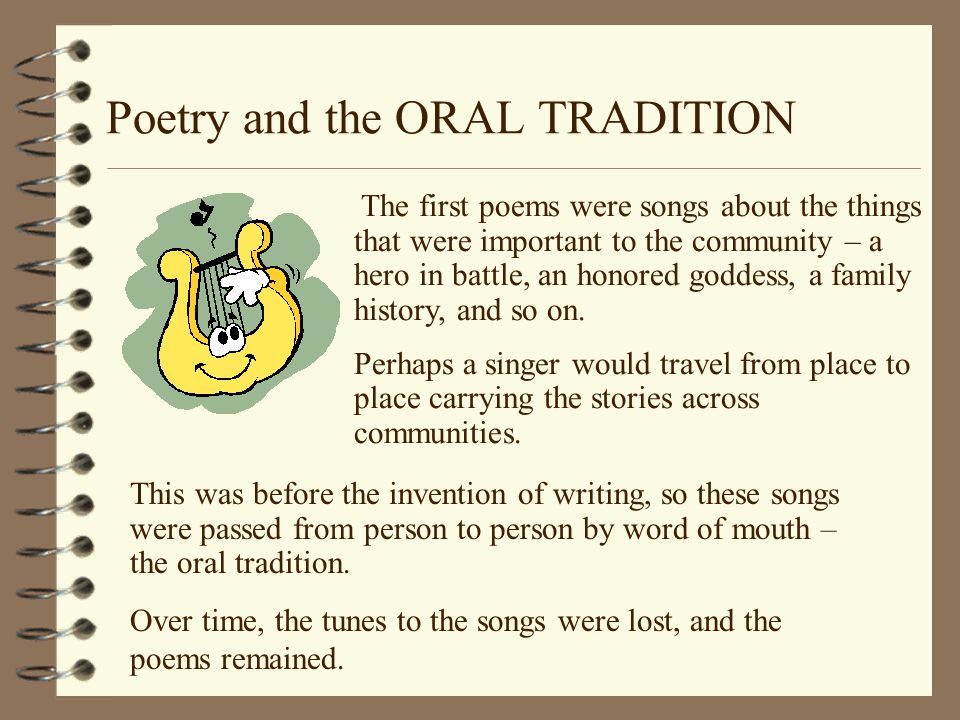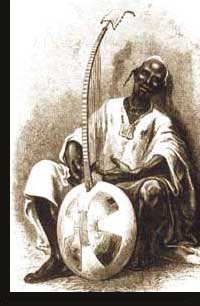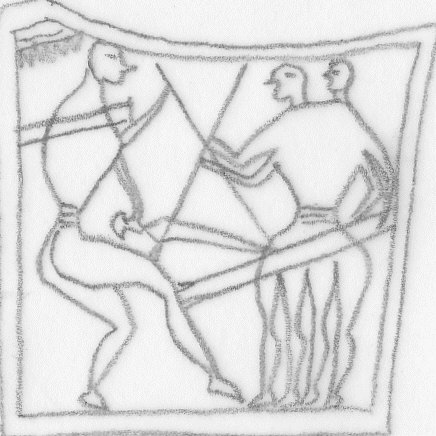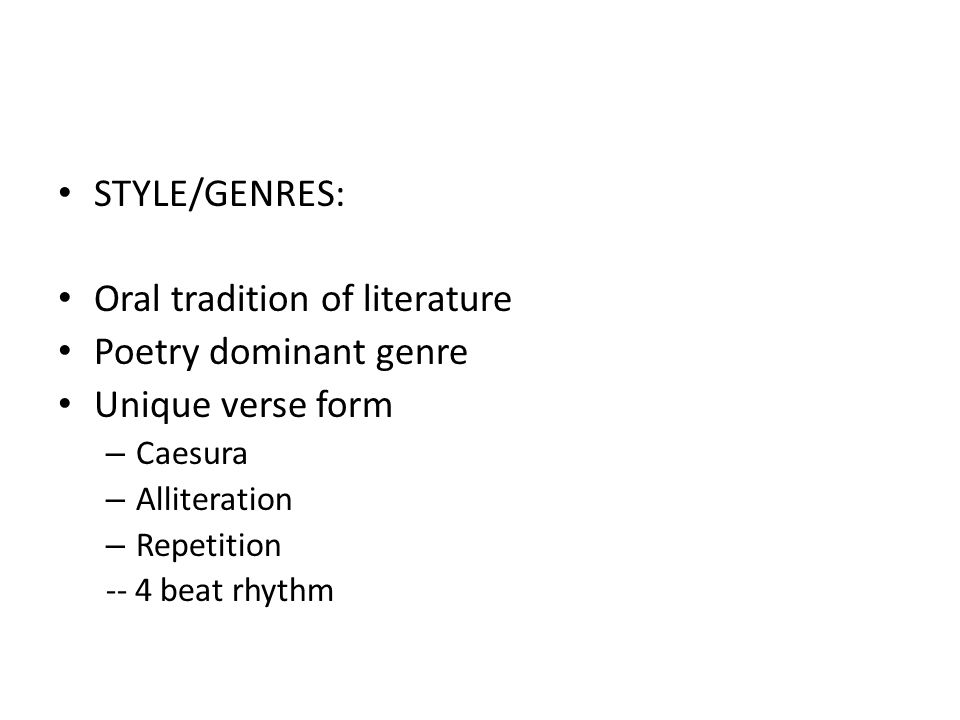2. Transitional Phases in the Form and Function of the Book before Gutenberg. 2.B. The Transition from Oral to Written Culture “Some might argue that, without writing, the same beliefs could not have prevailed over such a long period of time, but in reality, oral traditions are far more faithfully passed on than the written word.


Oral literature or folk literature corresponds in the sphere of the spoken (oral) word to literature as literature operates in the domain of the written word.
English/Language Arts Curriculum. NOTE :: Various file formats are used on this page that may require download.If larger than 1mb, it will take longer to download.For

Poetry. Poetry (ancient Greek: ποιεω (poieo) = I create) is an art form in which human language is used for its aesthetic qualities in addition to, or instead of, its notional and semantic content. It consists largely of oral or literary works in which language is used in a manner that is felt by its user and audience to differ from ordinary prose.
African literature – The influence of oral traditions on modern writers: Themes in the literary traditions of contemporary Africa are worked out frequently within the strictures laid down by the imported religions Christianity and Islam and within the struggle between traditional and modern, between rural and newly urban, between genders, and between …
An oral law is a code of conduct in use in a given culture, religion or community application, by which a body of rules of human behaviour is transmitted by oral tradition and effectively respected, or the single rule that is orally transmitted.. Many cultures have an oral law, while most contemporary legal systems have a formal written organisation. The oral tradition …
Meet owners Shirley Brown and Loretta Fretwell. These two teens started TuscaBlue in 1994 with a willing spirit and a can-do attitude. Since that time our business has grown to meet every print and graphics need in the community.

For many centuries, poetry movements and communities have served as the most provocative, creative, vital, engaging, and oft-underground elements of regional and national literary trends. The simple joy of gathering for a single or group reading, listening to verse, hearing background stories, and

Oral tradition: Oral tradition, the first and still most widespread mode of human communication. Far more than “just talking,” oral tradition refers to a dynamic and highly diverse oral-aural medium for evolving, storing, and transmitting knowledge, art, and ideas. It is typically contrasted with literacy, with



Critics often argue as follows: That short sayings of Jesus were the only ones recorded; and, by implication, are the only ones that we may reasonably assess as having been passed down to us from Him with any accuracy; and, That these short sayings circulated by word of mouth for some 20 yea